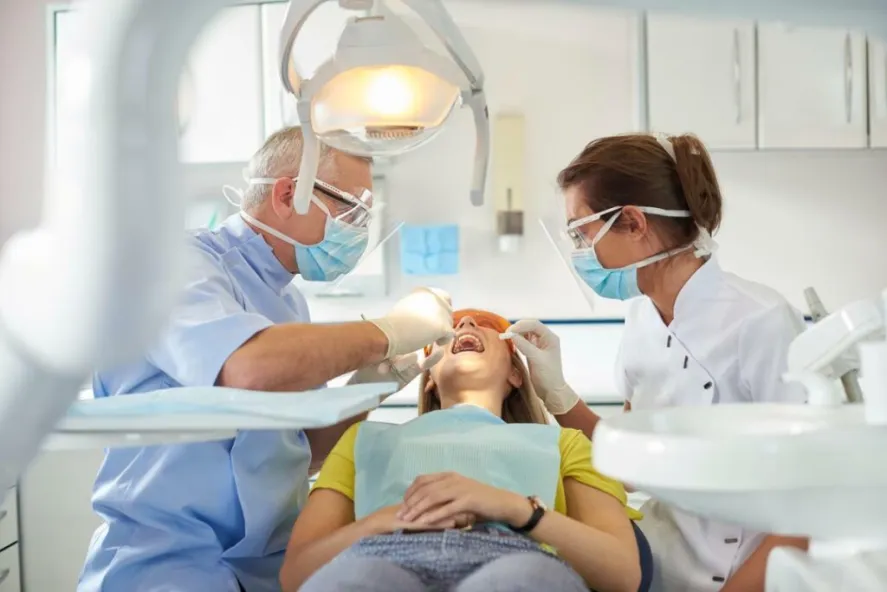The Texas State Board of Dental Examiners (TSBDE) is the state agency charged with licensing and regulating dentists and dental hygienists. As part of its regulatory duties, the TSBDE receives complaints about dentists, investigates those complaints, and brings formal disciplinary action against dentists if warranted. Getting legal representation in disciplinary proceedings before the TSBDE can be critical to reaching a positive outcome in your case. As a result, if you are facing disciplinary investigations, complaints, or formal proceedings before the TSBDE, you should consult a dental license defense attorney for help.
The February 2024 TSBDE Newsletter outlined some common violations that dentists face in disciplinary proceedings before the TSBDE, as organized by subject matter.
Violations About Treatment Planning
22 Tex. Admin. Code §108.2 outlines the dentist’s duty of fair dealing in providing patient treatment advice. More specifically, 22 Tex. Admin. Code §108.2(a) states that since dentists have special knowledge that patients do not have, they shall advise patients, before beginning treatment, of the proposed treatment and any reasonable alternatives to allow the patients to become involved in the treatment decisions. 22 Tex. Admin. Code §108.2(b) requires that dentists’ advice in this context include, at a minimum:
- the nature and extent of the treatment needed by such patient;
- the approximate time required to perform the recommended dental treatment and services;
- the terms and conditions of the payment of his fee; and
- any further or additional service or returns by the patient or adjustments, repair, or consultation and the time this shall occur.
Another common violation involves 22 Tex. Admin. Code §108.8(c)(4), which states that all dental records must contain a patient’s treatment plan, options, and recommendations.
Likewise, Tex. Occ. Code §259.001 prohibits dentists from making misrepresentations or false or misleading statements to patients or prospective patients, which applies to treatment planning and diagnosis.
Violations About Diagnosis
As part of the duty of fair dealing under 22 Tex. Admin. Code §108.2(d), neither dentists nor their employee(s) shall mislead dental patients about the gravity or lack thereof of such patients’ dental needs.
Likewise, 22 Tex. Admin. Code §108.2(e) states that “a dentist shall not flagrantly or persistently overcharge, overdiagnose, or overtreat a patient. For this rule, the meaning of “overcharge” includes, but is not limited to, collecting or attempting to collect a fee without reasonable justification for any element of dental services provided to a patient that is in excess of the fee the dentist ordinarily charges to others for the same service.”
An additional common violation by dentists related to a patient’s diagnosis is the failure under 22 Tex. Admin. Code §108.8(c)(3) to record the patient’s diagnosis in their chart.
Violations About Medications Given and Prescribed
First, under 22 Tex. Admin. Code §111.2, all dentists permitted by the Drug Enforcement Agency (DEA) to prescribe controlled substances shall conduct at least one self-query for controlled substances at least once per year through the Prescription Monitoring Program of the State of Texas.
Dentists also commonly violate 22 Tex. Admin. Code §110.10, which covers dentists’ use of general anesthetics. This section prohibits dentists from administering or using certain drugs and types of drugs as anesthetics unless they hold a valid Level 4 – General Anesthesia or Deep Sedation permit issued by the state. Even if they hold a valid permit, a dentist may not have more than one person under anesthesia at a time, excluding recovery.
Under 22 Tex. Admin. Code §108.8(c)(6), dentists must keep a record of all medication and dosages given to patients, which they often fail to do.
Tex. Occ. Code §258.053 is another commonly violated law in disciplinary proceedings. This section prohibits dentists from prescribing, providing, obtaining, ordering, administering, possessing, dispensing, giving, or delivering to or for any person a narcotic drug, dangerous drug, or controlled substance that is not necessary or required or the use of possession of which would promote addiction to the drug or substance. Likewise, dentists may not aid, abet, or cause another person to engage in any of these actions concerning narcotic drugs, dangerous drugs, or controlled substances.
Dentists also are bound by various sections of the Texas Controlled Substances Act, which can result in disciplinary proceedings if they violate it. Some pertinent sections that dentists may violate concerning improper usage of controlled substances include the following.
For instance, Tex. Health and Safety Code §481.071 requires that dentists have a valid medical purpose to prescribe, dispense, deliver, or administer a controlled substance under their discretion and supervision in the course of their medical practice.
Tex. Health and Safety Code §481.129 governs fraud concerning prescribing controlled substances. For example, this section prohibits dentists from using federal DEA registration numbers that are fictitious, revoked, suspended, or issued to others or issuing prescriptions with false or fictitious signatures. It also bans dentists from
Tex. Health and Safety Code §483.022 requires dentists to maintain a list of designated agents and the healthcare facilities that employ them in writing to provide to pharmacists upon request. These agents are those individuals authorized to communicate prescriptions to pharmacists.
Finally, Tex. Health and Safety Code §483.045 provides a criminal penalty for forging or altering prescriptions for dangerous drugs, whether in writing or by telephone calls.
Violations About Substance Abuse
All too often, violations involving prescribed medications can be symptomatic of a dentist’s problems with substance abuse. Alcohol abuse also can lead to disciplinary proceedings for dentists and many other professionals. Fortunately, the TSBDE fully supports the Professional Recovery Network, which allows dentists with substance abuse issues to seek confidential evaluations and treatment.
Violations Concerning False, Misleading, or Deceptive Advertising
Dentists also are subject to various rules of professional conduct concerning the advertising of their services. False, misleading, or deceptive advertising could lead to disciplinary proceedings before the TSBDE.
Violations Concerning Sexual Misconduct
Allegations of sexual misconduct against dentists by patients and employees can result in disciplinary complaints and proceedings. Dentists should know their words and behavior to ensure they are not misconstrued.
We Can Advocate on Your Behalf in Proceedings Before the TSBDE
The dental license defense lawyers of Bertolino LLP can help guide you through the disciplinary complaint process. No matter what allegations you face, we are here to represent your interests and work to minimize the negative effects of a complaint on your license and career. We can help resolve the case against you and maintain your dental license. Call us today at (512) 515-9518 to reach the offices of Bertolino LLP or contact us online.
Call or text (512) 476-5757 or complete a Case Evaluation form





